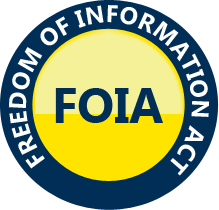
Social Services
Vision Statement:
All citizens of Bland County will be safe, stable, self-determined, and self-sufficient.
Mission Statement:
Bland County Department of Social Services commits to collaborating with community partners to maximize the quality of life for our citizenry. Through empowerment, we will promote safety, stability, self-determination, and self-sufficiency within our community in a supportive and professional manner.
Bland County Department of Social Services provides state supervised locally administered programs to the citizens of Bland County as mandated by the Code of Virginia. The agency provides our residents the opportunity to be evaluated for eligibility for participation in assistance programs and in receiving direct services.
The financial assistance programs generated nearly $4,185,000 dollars (FY 2004) into the local economy. The primary programs are: TANF (Temporary Assistance for Needy Families), Food Stamps, Medicaid, and Fuel Assistance. Eligibility for each financial assistance program differs, but anyone in need is encouraged to complete an application in order to have their eligibility determined.
The service programs are direct services to families and individual adults in an effort to help the household reach their optimum well being. The primary programs are: Adult and Adult Protective Services, Child Protective Services, Foster Care and Adoption Services, and Prevention and Support Services (family services). In addition, the VIEW program provides assistance for able-bodies recipients of TANF in securing employment.
A Comprehensive list of available services are:
Temporary Assistance for Needy Families (TANF) Program
Provides temporary financial assistance to families with children who have financial need and meet criteria.
The TANF program is the cornerstone of Virginia’s sweeping Welfare Reform initiative signed into law by Governor George Allen on March 20, 1995. The TANF program initiative has time to limited benefits, a strong work requirement, and a social contract which sets out the responsibilities of and expectations for recipients of public assistance and the government.
Aid to Dependent Children-Foster Care (AFDC-FC)
Financial aid is provided for children eligible for assistance who have been removed from their homes and placed in custody of the Department of Social Services.
Emergency Assistance (EA)
Provides short term, limited financial assistance to families with children when a fire or other natural disaster has destroyed those things necessary for taking care of the family.
Auxiliary Grant Program
Financial assistance is available for certain needy, aged, blind or disabled persons who reside in adult care residences or adult family care homes. The money received, plus other income, is used by the person to pay for care provided by the home. Individuals who get money from the Auxiliary Grant Program also get a Medicaid card to use for medical bills.
Food Stamp Program
This federal program supplements the food budgets of low income households to help assure needy persons a nutritionally adequate diet. Eligibility is determined by financial need, household size, and non-financial criteria such as student and work registration.
Medical Assistance (Medicaid)
This federal/state financed program provides medical care for specified needy persons. Eligibility for Medicaid is determined by the Social Services Department according to criteria established by the state Department of Medical Assistance Services, which administers the program.
Medicaid makes direct payments to health care service providers for eligible individuals and families who are unable to pay for needed medical services. Medicaid pays for a variety of medical services, including; prescription drugs, doctor visits, nursing facility care, and hospital care.
Children’s Medical Security Insurance Plan (Title XXI)
The Children’s Medical Security Insurance Plan (Title XXI) covers uninsured low-income children from birth through age 18. The program is designed to provide comprehensive health care benefits for working families, who earn too much to qualify for Medicaid and too little to afford health insurance.
Fuel Assistance Program
Eligible low-income households receive federal assistance with their home heating and cooling bills. Faulty or hazardous heating systems may also be repaired in households eligible for fuel assistance. Age or health requirements must be met to meet cooling criteria.
State and Local Hospitalization (SLH)
State and Local Hospitalization provides direct payment to hospitals for individuals, who do not qualify for Medicaid and who are unable to pay for required medical services as funding allows. This program will pay for required medical services, limited hospitalization, outpatient surgery, and emergency room visits. In-patient and outpatient doctor visits are not covered.
Adoption Services
Provides services and registries to bring together children and families for permanent placements.
Child Care Services for Children
Provides services of child care in approved facilities for a defined portion of a 24-hour day, to enable parents to be employed or to provide services when they must be away due to an emergency. Services may also be provided for children needing protection.
Early and Periodic Screening, Diagnosis, and Treatment (EPSDT)
Provides information and supportive services involved in encouraging children on Medicaid to utilize preventive health care, and refers such children to medical providers for medical services.
Employment Services
Provides services to able-bodied TANF recipients to assist them in retaining, regaining, or securing full or partial employment
Foster Care Services for Children
Provides counseling, supervision, and supportive and rehabilitation services to, or, on behalf of children who are committed or entrusted to local boards of social services.
Protective Services for Children
Receives and investigates complaints and reports concerning the abuse, neglect, or exploitation of children, and provides preventive action when there is a threat of harm. Services are available 24 hours a day to handle emergency situations. In 2004, statistically Bland County ranked #2 in the STATE in localities with the highest number of child abuse/neglect interventions per 1000 children.
Protective Services for Adults
Receives and investigates complaints and reports concerning the abuse, neglect, or exploitation of those over age 60, disabled individuals over age 18, and their families, when necessary. Intervention may involve in-home services, counseling, transportation, day care, sheltered employment, legal proceedings, and meal provision.
Home-Based Services
Provides home-based services for those over age 60, disabled individuals over age 18, and their families when necessary. The goals include the maximization of self-sufficiency, the prevention of abuse and neglect, a reduction and delay in premature or unnecessary institutionalization, and aid (when such a placement is appropriate).
Family Preservation and Family Support Services are services intended to help families whose children are in imminent danger of abuse, neglect, or out of home placement.
In accordance with the Federal law and U.S. Department of Agriculture policy, this institution is prohibited from discriminating on the basis of race, color, national origin, sex, age, religion, political beliefs, or disability. To file a complaint of discrimination, write USDA, Director, Office of Civil Rights, 1400 Independence Avenue, S.W., Washington, D.C. 20250-9410 or call (800) 795-3272 (voice) or (202) 720-6382 (TTY). USDA is an equal opportunity provider and employer.












